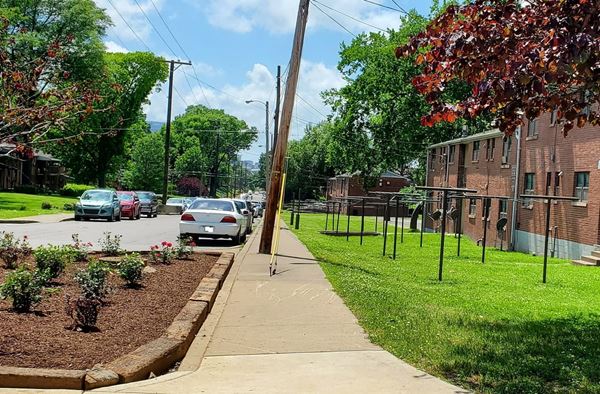Office of Health Equity
Leveraging diversity, equity and inclusion to drive the AHA's mission to be a relentless force for a world of longer, healthier lives.

About the Office of Health Equity
The American Heart Association created the Office of Health Equity in 2018 following an 18-month in depth review by a volunteer-driven task force.
The Office of Health Equity supports:

Science meets self-care on the Live Fierce / Atrévete a Vivir podcasts
We are women. Strong. Determined. Fierce. These two podcasts bring us together to take a stand for our health. This fun and dynamic series features podcasts in English and Spanish. They're hosted by American Heart Association Executive VP of Marketing and Communications Katrina McGhee – who is also a longtime professional coach -- and Lili Gil Valletta, co-founder and CEO of the cultural intelligence firms CIEN + and Culturintel.

Katrina McGhee and Lili Gil Valletta © American Heart Association
Scholarship and Mentoring Opportunities
EmPOWERED Scholars
EmPOWERED to Serve™ offers college scholarships to students who are passionate about public health, health equity and community engagement, especially those in communities with fewer resources to help students manage financial aid and debt. Currently enrolled freshmen, sophomores and juniors in a U.S. college or university who are working to improve community well-being and have a 2.0 GPA or higher are eligible to apply.
HBCU Scholars Program
The AHA partners with Historically Black Colleges and Universities to help students working toward professional degrees in the biomedical and health sciences. HBCU Scholars learn about the health of their communities, participate in research projects and explore varied career paths. Currently enrolled Black or African sophomores, juniors and seniors at select HBCUs who are highly motivated to seek careers in biomedical or health sciences and have a 3.2 GPA in the sciences are eligible to apply.
HSI Scholars Program
The AHA partners with Hispanic Serving Institutions of Higher Education and their students to create a pipeline for diverse researchers and health care professionals. Scholars are provided academic and career-enriching resources, including scholarships and mentoring. Currently enrolled sophomores, juniors and seniors at select HSIs who are highly motivated to seek careers in biomedical or health sciences and have a 3.0 GPA in the sciences are eligible to apply.
Health Equity in the Workplace
The American Heart Association’s CEO Roundtable is working to eliminate workplace inequities that harm the health and well-being of employees, businesses and communities. The Roundtable’s new report, developed by business leaders and health experts, provides actionable strategies and principles employers can use to build toward health equity.

Committing to equity and a full, healthy life for everyone
Through research, community solutions and other substantial work, the AHA is addressing barriers to health equity including structural racism, social factors that hurt people’s health and threats to rural health.
Health Equity Education for Professionals
Explore the Portfolio of Health Equity on the Professional Education Hub.
- Online, self-paced learning environment
- Training for healthcare professionals to identify health disparities and remove bias
- Improve patient outcomes by integrating equitable solutions into hospital/clinical practice
Position Statements
The American Heart Association issues statements and advisories on health equity, social justice and structural racism. Here are some of our recent position statements.
Featured Statements
- Joint statement on health equity, social justice and civil unrest from the Association of Black Cardiologists, the American Heart Association and the American College of Cardiology
- What do the lives – and deaths – of George Floyd, Breonna Taylor and Ahmaud Arbery mean for the health of Blacks in America?
- American Heart Association issues call to action for addressing inequities in rural health
- Read More
Select science statements and conference presentations
The American Heart Association is a science-based organization whose core research programs have launched or furthered the work of many of this country’s brightest researchers. We have scientific statements and conference proceedings that address health equity-related issues. Find highlights here.
Science Statements
-
Structural racism causes poor health, premature death from heart disease and stroke American Heart Association Presidential Advisory
- Addressing Social Determinants of Health in the Care of Patients With Heart Failure: A Scientific Statement From the American Heart Association
- Social Determinants of Risk and Outcomes for Cardiovascular Disease: A Scientific Statement From the American Heart Association
- Importance of Housing and Cardiovascular Health and Well-Being: A Scientific Statement From the American Heart Association
- Assessing and Addressing Cardiovascular Health in LGBTQ Adults
- Racial bias and discrimination may negatively impact heart disease care, risk factors (Conference Presentation)

Policy Positions
The AHA has published policy positions on many issues related to health equity, including affordable, accessible healthcare, social determinants of health, access to healthy affordable foods, children’s health and others. A full set of our policy positions is here.COVID-19
The American Heart Association is working with researchers, medical experts, community leaders, businesses, families and more to reduce the impact of the coronavirus. The following are some ways we’re dedicating our resources to make a difference.

Diversity Leadership Committee
The Diversity Leadership Committee comprises of volunteer leaders who advise the AHA and our Board of Directors on issues related to diversity, equity and inclusion.
Take Action
Help us fight health disparities. Become involved in one of our initiatives today.
Invest in Health Equity
Health Ecosystems: Housing Security and Heart Health
The American Heart Association is a national leader in addressing health equity and social determinants of health. Housing security is an essential element of community health and well-being. Studies show that living in lower socio-economic areas is associated with a 30% to 90% higher risk of coronary heart disease, independent of individual characteristics including age and economic status.




